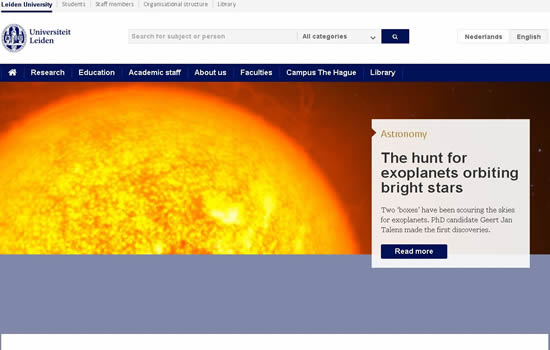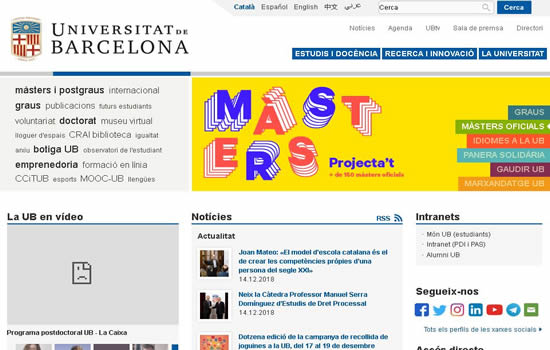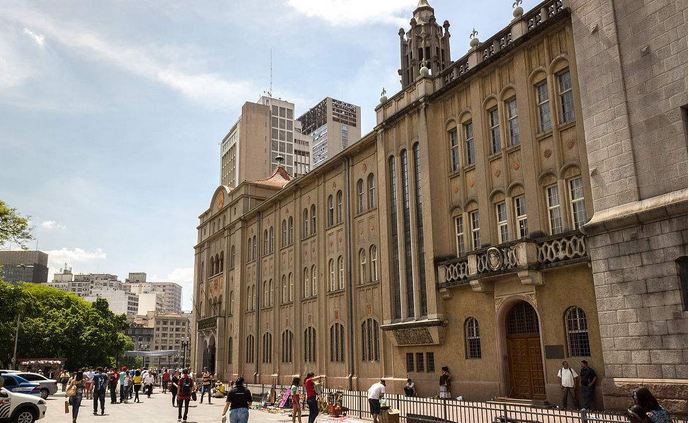选择热点
 荷兰莱顿大学
荷兰莱顿大学 西班牙巴塞罗那大学
西班牙巴塞罗那大学 巴西圣保罗大学 University of Sao Paulo, Brazil
巴西圣保罗大学 University of Sao Paulo, Brazil 台湾南华大学 University of South China in Taiwan
台湾南华大学 University of South China in Taiwan 科技大学 National University of Defense Technology
科技大学 National University of Defense Technology 南京大学 Nanjing University
南京大学 Nanjing University 上海复旦大学 Fudan University
上海复旦大学 Fudan University 泗水大学(Ubaya)
泗水大学(Ubaya) 印尼大学 universitas indonesia
印尼大学 universitas indonesia 越南某大学 Vietnam National University
越南某大学 Vietnam National University 菲律宾大学 University Of The Philippines
菲律宾大学 University Of The Philippines
used to的用法归纳
发布时间:2025-01-06
来源:大学网站
used to的用法归纳1.
基本用法特点used to的意思是“过去经常”,其中的to是不定式符号,不是介词,所以其后接动词原形(不接动名词)。
如:He used to live in Paris.
他过去一直住在巴黎。
I used to write poetry when I was young.我年轻时常常写诗。
"Do you play golf?
" "No, but I used to.
" “你打高尔夫球吗?
”“不打,但我过去打。
”2.
如何构成否定式和疑问式used to作为情态动词,可直接在used后加not构成否定式,直接将used置于句首构成疑问式,但与一般的情态动词不同的,它也可像普通动词那样借助助动词did构成否定式和疑问式。
如:He usedn’t [didn’t use] to come.
他过去不常来。
You used to go there, usedn’t [didn’t] you?
你过去常到那儿去,是吗?
Where did you use to live?
你过去是住哪儿的?
【注】在现代英语中,used to的否定式和疑问式通常借助助动词did构成(特别是在口语和非正式文体中),而直接将used作为助动词用通常被认为是非常正统或过时的用法。
然而有趣的是,有时还可见到以下这种混合形式。
如:Did you used to be a teacher?
你过去是当老师的吗?
They didn’t used to live here.
他们过去没住在这儿。
3.
used to与副词连用时的位置与often, always, never等副词连用时,通常置于副词之后,也可置于副词之前。
如:I always used [used always] to be afraid of dogs.
我过去老是怕狗。
He often used [used often] to sit outside the door of his house.
他过去常坐他家门口。
注意,它通常不与具体的一般不能与表示次数(如twice, three times 等)或一段时间(如three months, five years等)的词连用。
如:正:I went to Paris three times.
我去过巴黎3次。
误:I used to go to Paris three times.
正:He lived in the country for three years.
他在乡下住过3年。
误:He used to live in the country for three years.
4.
used to 与 be used to的用法比较(1) used to 意为“过去经常”,其中的 to 是不定式符号,后接动词原形。
如:He used to live in Paris.
他过去一直住在巴黎。
(2) be used to 意为“习惯于”,其中的to是介词,后接动词要用动名词。
如:He is used to living in the country.
他已习惯于住在乡下。
【注】① 若要强调从不习惯到习惯的过程,可用 get, become 等代替动词 be。
如:He has got used to looking after himself.
他已习惯于自己照顾自己。
② be used to 有时可能是动词 use 的被动语态结构 (此时意为“被用来”,其中的 to 为不定式符号,其后要接动词原形)。
如:A hammer is used to drive in nails.
锤子是用来钉钉子的。
5.
used to 与would的用法比较(1) 两者都表示过去的习惯,当表示过去习惯性的动作时,可互换。
如:When we were children we would [used to] go skating every winter.
我们小时候,每年冬天都去溜冰。
(2) 若表示过去持续的状态,通常只用used to,不用would。
如:He used to like you.
他原来还是喜欢你的。
He is not what he used to be.
他已不是从前的他了。
(3) 若要强调过去与现在的对比,也通常只用used to。
如:I don’t smoke these days, but I used to.
我现在不抽烟,但我以前是抽的。
I used to drive to work but now I cycle.
过去我常驾车上班,但我现在骑自行车。
【used to的用法归纳查看网站:[db:时间]】
基本用法特点used to的意思是“过去经常”,其中的to是不定式符号,不是介词,所以其后接动词原形(不接动名词)。
如:He used to live in Paris.
他过去一直住在巴黎。
I used to write poetry when I was young.我年轻时常常写诗。
"Do you play golf?
" "No, but I used to.
" “你打高尔夫球吗?
”“不打,但我过去打。
”2.
如何构成否定式和疑问式used to作为情态动词,可直接在used后加not构成否定式,直接将used置于句首构成疑问式,但与一般的情态动词不同的,它也可像普通动词那样借助助动词did构成否定式和疑问式。
如:He usedn’t [didn’t use] to come.
他过去不常来。
You used to go there, usedn’t [didn’t] you?
你过去常到那儿去,是吗?
Where did you use to live?
你过去是住哪儿的?
【注】在现代英语中,used to的否定式和疑问式通常借助助动词did构成(特别是在口语和非正式文体中),而直接将used作为助动词用通常被认为是非常正统或过时的用法。
然而有趣的是,有时还可见到以下这种混合形式。
如:Did you used to be a teacher?
你过去是当老师的吗?
They didn’t used to live here.
他们过去没住在这儿。
3.
used to与副词连用时的位置与often, always, never等副词连用时,通常置于副词之后,也可置于副词之前。
如:I always used [used always] to be afraid of dogs.
我过去老是怕狗。
He often used [used often] to sit outside the door of his house.
他过去常坐他家门口。
注意,它通常不与具体的一般不能与表示次数(如twice, three times 等)或一段时间(如three months, five years等)的词连用。
如:正:I went to Paris three times.
我去过巴黎3次。
误:I used to go to Paris three times.
正:He lived in the country for three years.
他在乡下住过3年。
误:He used to live in the country for three years.
4.
used to 与 be used to的用法比较(1) used to 意为“过去经常”,其中的 to 是不定式符号,后接动词原形。
如:He used to live in Paris.
他过去一直住在巴黎。
(2) be used to 意为“习惯于”,其中的to是介词,后接动词要用动名词。
如:He is used to living in the country.
他已习惯于住在乡下。
【注】① 若要强调从不习惯到习惯的过程,可用 get, become 等代替动词 be。
如:He has got used to looking after himself.
他已习惯于自己照顾自己。
② be used to 有时可能是动词 use 的被动语态结构 (此时意为“被用来”,其中的 to 为不定式符号,其后要接动词原形)。
如:A hammer is used to drive in nails.
锤子是用来钉钉子的。
5.
used to 与would的用法比较(1) 两者都表示过去的习惯,当表示过去习惯性的动作时,可互换。
如:When we were children we would [used to] go skating every winter.
我们小时候,每年冬天都去溜冰。
(2) 若表示过去持续的状态,通常只用used to,不用would。
如:He used to like you.
他原来还是喜欢你的。
He is not what he used to be.
他已不是从前的他了。
(3) 若要强调过去与现在的对比,也通常只用used to。
如:I don’t smoke these days, but I used to.
我现在不抽烟,但我以前是抽的。
I used to drive to work but now I cycle.
过去我常驾车上班,但我现在骑自行车。
【used to的用法归纳查看网站:[db:时间]】
- 上一篇: 物主代词考点注意
- 下一篇: 情态动词dare的用法
相关阅读
目录列表
资讯列表
英语资讯


共0条评论
网友评论温馨提示:您的评论需要经过审核才能显示,请文明发言!